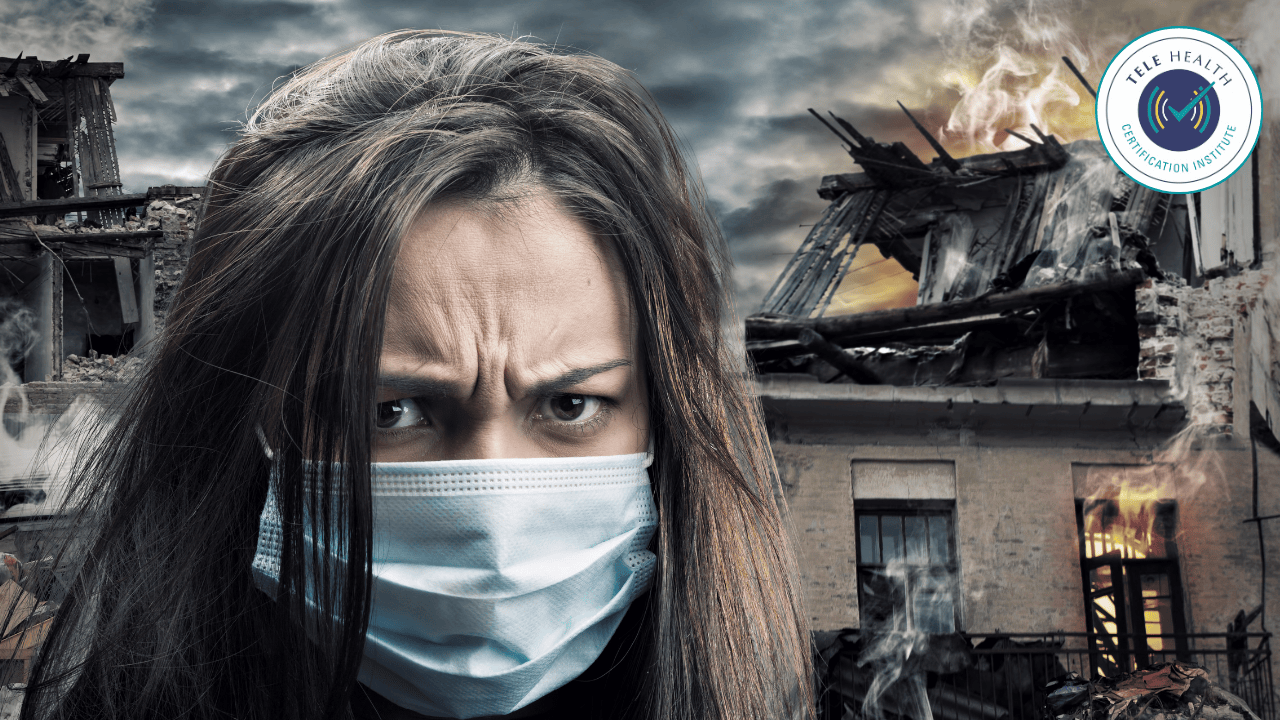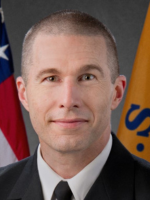Disaster Response to Recovery - Behavioral Health
Lessons for Caregivers
Enroll in the Online Self-Study course and complete it at your own pace.
1 CE hours available for behavioral health clinicians upon completion.

Behavioral health professionals are at the frontline of disaster response—and their preparedness can determine community resilience. This course offers essential lessons drawn from some of the most impactful public health emergencies in U.S. history, from Hurricane Katrina to the Zika virus outbreak.
Through the lens of real-world fieldwork and strategic response, clinicians will gain practical insights into disaster behavioral health that can enhance their ability to serve communities in crisis and recovery.
Enroll in the 1 CE Online Self-Study for $20
Payment Options are listed at checkout
Register for the 0 CE Training Video for $10
Payment Options are listed at checkout
Captain Michael King, PhD, MSW, LCSW, brings more than 17 years of experience at the intersection of public and behavioral health. As a Regional Administrator for SAMHSA and a Commissioned Officer in the U.S. Public Health Service, he has led national mental health response teams following major disasters and infectious disease outbreaks. His firsthand experience equips him to share critical behavioral health strategies that clinicians can apply across a range of emergencies.
In this course, CAPT King takes a grounded and pragmatic approach, weaving together data, personal deployment experiences, and public health lessons to help clinicians understand how to better prepare for, respond to, and recover from disasters. His method emphasizes collaboration, resilience-building, and the importance of culturally competent outreach to vulnerable populations.
Topics covered in this course include the behavioral health implications of historic public health crises (e.g., Hurricane Katrina, the Flint Water Crisis, and the Zika virus outbreak), the phases of emergency management, risk communication, resilience strategies for both responders and communities, and trusted behavioral health resources for disaster recovery. CAPT King also highlights how the behavioral health lessons learned from past disasters apply to current challenges, such as pandemic recovery and vaccine hesitancy.

Instructor
Captain Michael King, PhD, MSW, LCSW, is a social worker and epidemiologist who has worked at the intersection of behavioral and public health for over 17 years. He is Regional Administrator for the Substance Abuse and Mental Health Service Administration (SAMHSA) covering HHS Region IV, which includes Alabama, Florida, Georgia, Kentucky, Mississippi, North Carolina, South Carolina, and Tennessee. Before joining SAMHSA in 2019, he supported State and Federal public health capacity at the U. S. Centers for Disease Control and Prevention (CDC) as an instructor and Field Supervisor for post-doctoral fellows enrolled in the Epidemic Intelligence Service. CAPT King previously served for over 10 years on the National Asthma Surveillance Team in the National Center for Environmental Health where his interests focused on chronic disease surveillance, environmental exposure and hazard assessment, and disaster mental health. As a Commissioned Officer in the U.S. Public Health Service, CAPT King deploys routinely following disasters and has had the privilege to lead one of five national Mental Health Response teams (Team 5) that provide crisis counseling and technical assistance to medically-underserved populations, with a focus on emergency public health response.
Key Takeaways:
Historical context and impact: Understand how past disasters reshaped emergency behavioral health practices in the U.S.
Behavioral health response strategies: Learn what interventions proved effective during major outbreaks and crises.
Preparation for post-pandemic recovery: Access trusted tools and resources for supporting both the public and frontline responders.
Why this course?
Real-world expertise: Learn directly from a national leader who has led field responses to major public health emergencies.
Trusted continuing education: Offered by Telehealth Certification Institute, a leading provider of CE for behavioral health professionals.
Relevant and practical content: Gain strategies that clinicians can immediately apply when working with clients affected by disaster or crisis.
Learning Objectives:
List important past disasters and disease outbreaks with pandemic potential that changed how the United States handles emergency behavioral health response.
Describe Behavioral Health impacts and interventions implemented during past disasters/outbreaks.
Identify Behavioral Health resources to help the public and responders prepare for post-pandemic recovery.
This self-study course is designed to give behavioral health clinicians the perspective and tools they need to support individuals and communities during times of crisis. It’s a vital resource for those looking to build their competence in disaster response and long-term recovery efforts.
Add this course to your cart to develop your skills, boost your confidence, and enhance your impact as a behavioral health professional.
This is a non-interactive self-study course. Instruction consists of 1 hour of video instruction and a post-test.
Select each tab for course details
Availability: From the time of registration, you have six months to access the coursework.
Who Should Attend: This course is intended for clinicians who provide behavioral health services.
Teaching Methods: This is a non-interactive, self-study course. Teaching methods for this course include recorded lectures, videos, a post-test, and a course evaluation.
How to attend: Directions for completing a course can be found by clicking here.
This program was recorded on March 24, 2021
Testimonials
Bridgette Nalumu
Public health consultant, Green and Purple Consultancy Network
Lora Verley
Clinical Therapist, Bayless Integrated Healthcare
Jackie Tanna
Therapist, Region One Mental Health
Jackie Bell-Russell
Therapeutic Behavioral Strategist, Rialto Unified School District